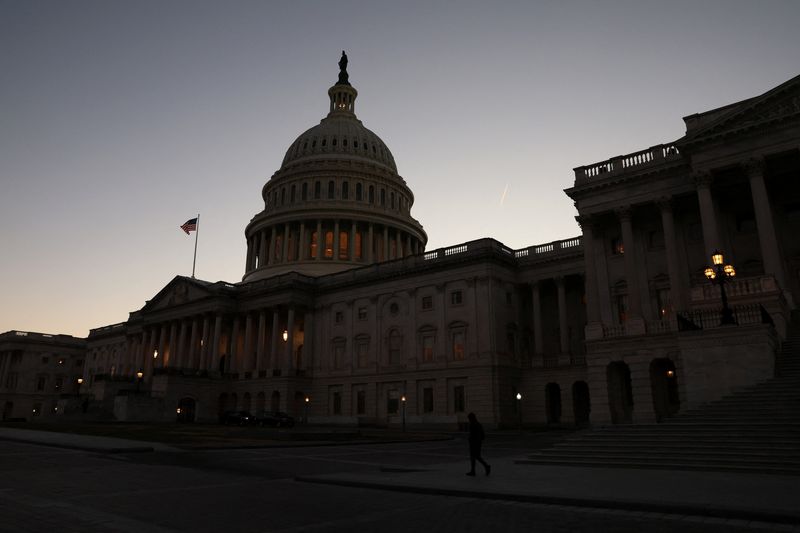By Patricia Zengerle
WASHINGTON (Reuters) - The U.S. House of Representatives voted overwhelmingly on Tuesday to create a select committee on China, using one of its first votes since Republicans took control to stress members' desire to counter Beijing's growing international influence.
The House voted 365 to 65 in favor of a resolution establishing the Select Committee on the Strategic Competition Between the United States and the Chinese Communist Party, which will investigate the issue and make policy recommendations.
All 65 of the "no" votes came from Democrats, some of whom said they were concerned the Republican-led panel would be too partisan. But 146 other Democrats voted in favor.
Democratic Representative Jim McGovern, a co-chair of the Congressional-Executive Commission on China, a grouping of House members and senators which studies China policy, said he would vote to create the select committee despite concerns it might be overly partisan.
"We certainly don't want it to turn into a place that perpetuates anti-Asian hate," McGovern said, citing past rhetoric such as Republican former President Donald Trump's labeling of COVID-19 as "the China virus."
House Speaker Kevin McCarthy insisted the panel would not be partisan.
"You have my word and my commitment. This is not a partisan committee. This will be a bipartisan committee," McCarthy said in remarks urging the House to back the bill.
He said the committee would address issues such as bringing jobs back from China to the United States, securing intellectual property and bringing supply chains back to the country.
Asked for comment at a briefing on Wednesday, Chinese foreign ministry spokesperson Wang Wenbin said he hoped those involved would look at China and Sino-U.S. relations "objectively and rationally, from the perspective of U.S. self-interest and the common interests of China and the United States," and work with China to promote mutual respect and cooperation.

There has been friction in U.S.-China relations over issues including the huge U.S. trade deficit, Chinese pressure on Taiwan, and Beijing's transparency over its handling of COVID-19, which first surfaced in that country.
The new committee will be chaired by Republican Representative Mike Gallagher.